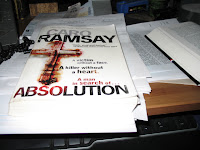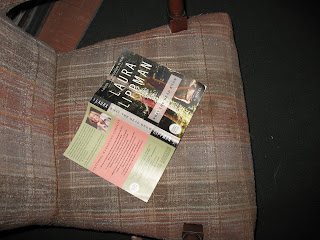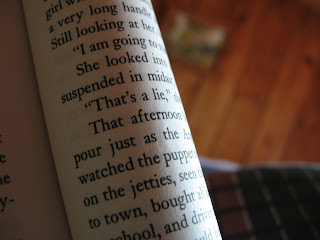When Richard B. Wright’s Clara Callan won both the Governor General’s Award and the Giller in 2001, I devoured it like the rest of Canada, in one fell swoop sitting on the world’s most uncomfortable couch in our old apartment with its fabulous windows and loud College Street traffic. The novel both inspired and saddened me, with its echoes of A Bird in the House, and its epistolary format, which just seemed to work, Clara Callan haunted me for years.
Fast-forward many seasons and I’ve just had my hip surgery. Zesty‘s utterly wonderful mum gave me a copy of Adultery. And maybe I shouldn’t have read it then because sometimes when you expect an author to write the same book twice, it’s more your fault than theirs when you’re disappointed. Right?
Regardless, I’m thrilled, thrilled to say that October, Wright’s latest novel coming out in a few weeks, has me enthralled all over again. It’s a short, tightly written book about James Hillyer, a retired professor (of literature, natch), who learns that his daughter, the headmistress of a prestigious girls’ school in England, has aggressive breast cancer—the very same disease that killed her mother around the same age. When Hillyer flies to England to see her, he runs into Gabriel Fontaine, an old friend from childhood.
Hillyer drifts with swift strokes down memory lane as he describes his friendship with Gabriel during the summer he spent with his uncle at a resort town in Quebec: the rivalry he felt towards the boy despite the latter being wheelchair bound because of polio; the love he felt for Odette, a French-Canadian maid and Gabriel’s girlfriend; and the coming of age he endures in that moment when he realizes that wealth and privilege will always allow for a certain latitudes that James can never experience. All these themes and events swell together and capture that feeling of childhood, you know when you’re free for those two weeks the Americans show up at the cottage and it’s not just you, your brother, and your cousins, but a whole gang of kids with adolescent emotions and feelings, adventurous spirits and a crushing reality that it all will come to an end just a mere fourteen days later. That’s the essence of this book: that feeling when the vacation comes to an end and things have happened to change your life forever, only James doesn’t know it at the time, he doesn’t realize it completely until he looks back, which is the simple brilliance of this book.
Wright’s narrative style reminded me so much of Hugh MacLennan’s The Watch That Ends the Night, which can never be a bad thing, and he has such a skill for crafting the scenes between Gabriel and James. Their voices drifting easily between the high pitched tones of young adulthood to the more defined, fully grown mature tenor of elderly men, Gabriel and James, whether they like it or accept it or not, have deeply impacted each other’s lives.
I know the fall remains the single busiest time when it comes to the more commercial forms of art (novels, films, television). But sometimes, a book comes along that reminds you why we all work so hard, for me, this fall, it might just be October. But ask me again after I’ve maybe read a few more of the new releases…







